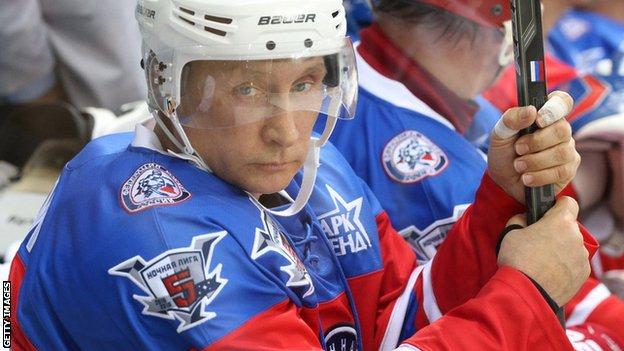
Can sports sanctions have any influence in ending the Russian invasion of Ukraine? BBC World Service reporter and cricket historian Mo Allie has been investigating what role sporting sanctions can play in politics, in particular how they helped end apartheid in his homeland of South Africa.
The governing bodies of both European and world football, UEFA and Fifa, have banned Russia and its clubs from participating in any of their competitions, with many others following suit.
Those responsible for motor sports, including Formula One, athletics, tennis, rugby and many others have excluded Russian athletes, officials and teams.
Last week, the Wimbledon Championships banned players from the country in a bid to “limit Russia’s global influence through the strongest possible means”.
South Africans know all about the impact such sanctions can have after different sports in the country endured periods of isolation from the 1960s to 1991, when the end of apartheid began.
“General sanctions, including on sport, worked to bring down the apartheid regime, so it makes sense to do it on Russia as well,” former South African cricket chief Dr Ali Bacher told BBC Sport Africa.
In 1948, laws in South Africa segregated people based on race and governed all aspects of life to benefit white minority rulers in a policy that became known as apartheid (Afrikaans for “apartness”).
Sanctions, especially in the fields of sport, economics, education, arts and culture, were instrumental in the eventual demise of apartheid and the installation of a democratic order in South Africa in 1994.
“You can’t take over the world, that’s what they’re doing,” Dr. Bacher said.
“Unfortunately, Russian athletes have to suffer because of their leader, but the same thing happened to us as South Africans. Many, myself included, did not support apartheid, but we also had to suffer the effects of isolation.”
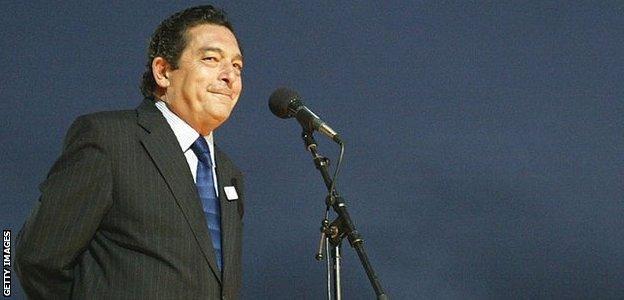
Bacher, 79, played a controversial rule in South African sport, staging rogue tours of the country in the 1980s, taking in England, the West Indies and Australia, in a bid to maintain a certain level of cricket in his homeland. .
Such tours of a pariah nation so isolated by its apartheid policies drew furious headlines, but Bacher was also taking steps to develop cricket in black townships at the same time.
His role in creating a unified cricket board in 1991, after contacting and befriending the head of the African National Congress’s sports bureau, resulted in South Africa being readmitted to international cricket more than two years earlier. the official end of apartheid.
“It was not just sporting sanctions that played a role in the fall of apartheid,” Dr Bacher added.
“Economic and other sanctions also helped, but the impact of sporting sanctions was very significant considering how popular sport is with South Africans.
“We had the best (cricket) team in the world in 1970 and we only came back to world cricket in 1991, so for 21 years global sanctions hit South African cricket, no question about it.”
However, they did not stop apartheid quickly.
Three decades of sports isolation
Introduced after the National Party’s electoral victory in 1948, the apartheid laws were enforced for over a decade before the affiliation of South Africa’s white-only national sporting organizations to international bodies was gradually halted.
During that period, his unrestricted access to international sport, while his black compatriots were denied such opportunities, began to grind to a halt.
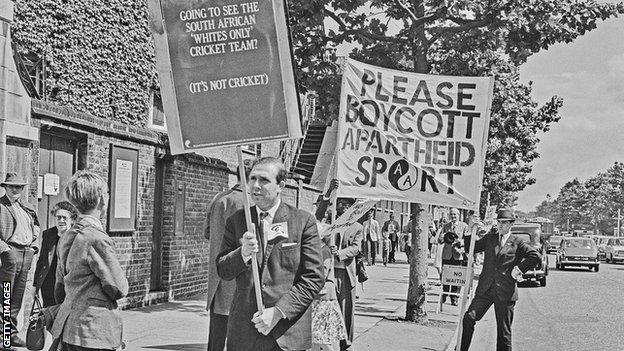
Things began to change in the late 1950s when South Africa’s all-white football association was excluded from the first African Cup of Nations, before being suspended from FIFA in 1961 (and expelled altogether in 1976).
When the white minority government refused to allow a team from England that included Basil D’Oliveira, a ‘Cape Colored’ South African who had fled apartheid, to go on a scheduled tour in 1968, the big scandal ignited South Africa’s international sporting isolation.
Banned from the 1964 and 1968 Games, the all-white National Olympic Committee was kicked out of the Olympic movement in 1970, when South Africa had been banned from a host of sports, from athletics to wrestling.
Meanwhile, the visit to Australia in 1969-70 – where Bacher’s white team famously covered up 4-0 – was the last official tour organized by the South African Cricket Association, which was suspended indefinitely soon after.
The ‘soft dimension’
In the late 1980s and early 1990s, there was huge pressure around the world for South Africa to release Nelson Mandela, sentenced to life in prison in 1964 after being found guilty of plotting to overthrow the government.
Demonstrations against apartheid were held around the world, with a sold-out concert at London’s Wembley Stadium in honor of the freedom fighter’s 70th birthday. amplifying the problem when it airs in 60 countries around the world.
Given the vested interests of many countries in South Africa at the time, the sport became an incredibly useful way of harming many who ran the country or lived as a supposedly superior race or both.
“The growing international calls for Mandela’s release were a universal movement that helped enormously to isolate the apartheid regime – sport played a huge role in that,” Professor Andre Odendaal, one of the leading historians, told BBC Sport Africa. South African sports
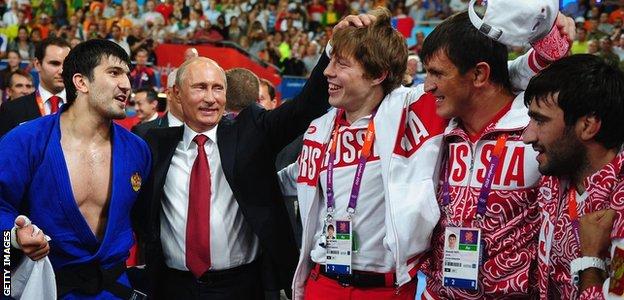
“Western interests were tied to the South African economy and countries like Britain and the United States supported the regime against liberation movements in the 1970s and early 1980s.
“Asking for soft sanctions like sport was more acceptable than asking for economic sanctions and cutting off the oil supply.
“A key part of the success of the sporting boycott was that it was a soft dimension of society that had a massive impact on white South Africans. They always felt part of the colonial world: ‘the supremacy of Western civilization in darkest Africa’. ‘, as they called it.
Appropriateness of sanctions?
During his long presidency of Russia, Vladimir Putin has pushed the sport forward, as the country hosted the 2014 Winter Olympics in Sochi and the last soccer World Cup in 2018, both at great expense, among a host of events. .
The country’s attempts to achieve athletic success through a state sponsored doping regime it also clearly indicated the importance attached to giving Russians a sense of proud nationalism in their sporting success.
Although the Russian state forbids talk of “war” in Ukraine, calling it a “special military operation” instead. cannot stop questioning its citizens about why athletes and events, have been effectively eliminated.
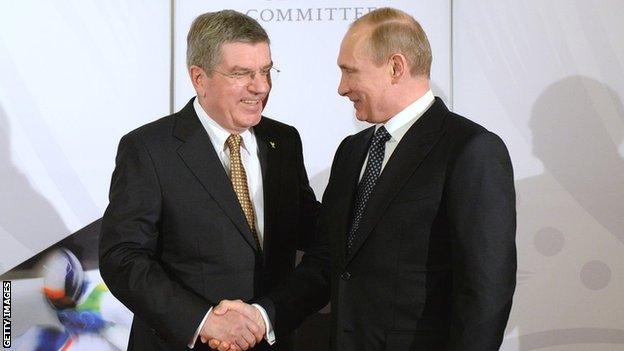
Professor Odendaal, whose work helped rewrite the history of South African sport to include the role played by the country’s black majority, warns that sporting bodies must be consistent in their use of sanctions.
“I feel sympathy for those who are trying to use sanctions to help save the situation for the Ukrainian people. Can you imagine children lying in bomb shelters and basements and living in that terror of destruction?” he said.
“But if you’re going to use the outbreak of war as a reason to institute sanctions, then you have to be consistent about it.
“Apartheid was a clear situation of moral responsibility for people in a world in which human rights and the right to human dignity were realized for all.
“But if you start supporting this or that country depending on what war is going on, then we run the risk of not having any more Olympics.
“There are many conflicts like, for example, Saudi Arabia, an ally of certain people, is in Yemen and there are conflicts in Afghanistan, Iraq and Syria, but there is no talk of introducing sanctions to help normalize those situations.”
